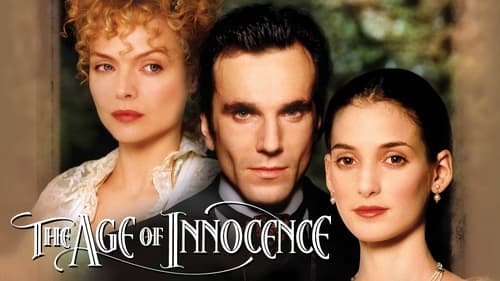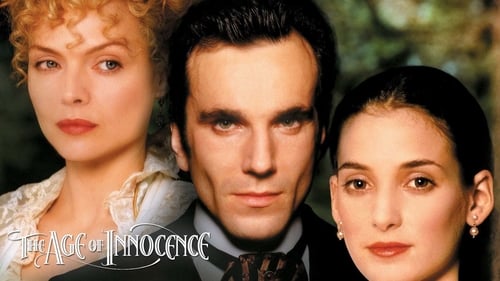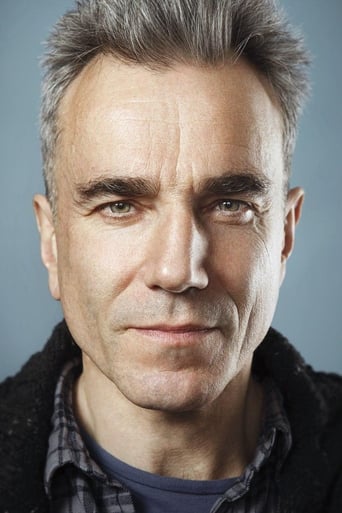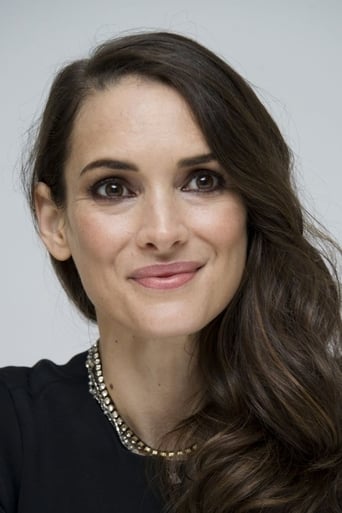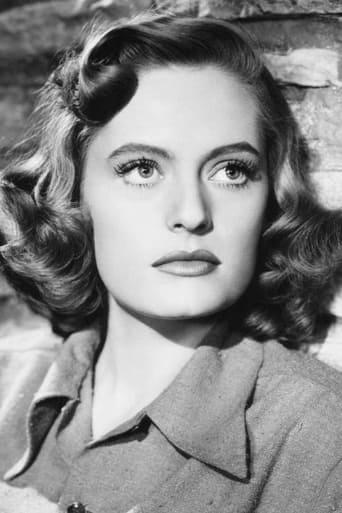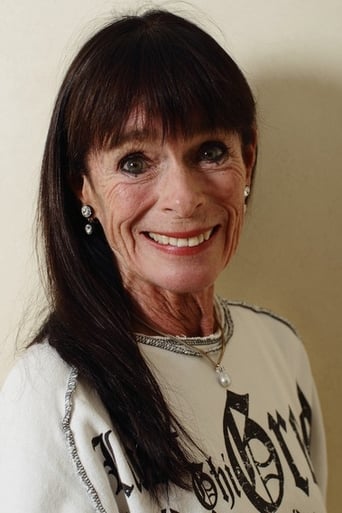Linkshoch
Wonderful Movie
Mjeteconer
Just perfect...
Freaktana
A Major Disappointment
Fairaher
The film makes a home in your brain and the only cure is to see it again.
Antonius Block
You may have to shrug off your disdain for films about the upper crust of society to watch this one. If you can do that, and if you can patiently allow the story to unfold, you will be rewarded. Director Martin Scorsese is true to Wharton's brilliant novel, and was painstaking in his attention to all of the little details of the time period. The narration by Joanne Woodward is excellent. The forbidden love Newland Archer (Daniel Day-Lewis) has for Countess Olenska (Michelle Pfeiffer) while being engaged to May Welland (Winona Ryder) grows ever so gradually, until it becomes a raging fire. At the same time, there is great restraint here, accurate to the morals of the day, but leaving one with a much deeper feeling of the angst involved as a result. The little signals each person in this love triangle send to one another often have great subtlety, yet it feels just as powerful as if they were yelling or screaming.I confess I didn't think any of the three principal actors delivered a great performance – Day-Lewis is a little too morose, Pfeiffer lacks that teeny touch of wickedness, and Ryder's acting is the most suspect, despite her Oscar nomination. The chemistry between Day-Lewis and Pfeiffer does not seem authentic, but with all of that said, each of them is reasonably good. I think Scorsese was dead on with the tone and this is clearly a labor of love, but I don't think the story needed 139 minutes, and there are some issues with pace (which compound the understated action). On the other hand, he gives us some truly wonderful moments, all leading to an ending that is absolutely brilliant, which, just as with the novel, left me with goosebumps.
Robert J. Maxwell
Daniel Day-Lewis is Newland Archer, the protagonist of Edith Wharton's novel about love, manners, ethics, money, gossip, and inner turmoil in upper-class 19th-century New York in the 1870s. Day-Lewis recently announced his retirement from acting and it's a damned shame. His Newland Archer is slow-spoken and delicate in his movements. Very polite, you know, kissing hands, attending the opera, and the like. But his Bill "Butcher" Cutting was a convincing brutal, coarse murderer in "Street Gangs of NewYork," a rabid and ultimately psychotic capitalist in "There Will Be Blood," and an action hero in "Last of the Mohawks." I can't tell if he's particularly handsome or not but his features are plastic enough to fit these varied roles with credibility, as do his performances.The set dressing, the art department, and the production design have outdone themselves in providing period appointments. The screen is filled with evening clothes, hansom cabs, ferns, and piles of flowers -- -- the "Gilded Age" for those fortunate enough to have been gilded. It was quite an age. No income tax, entrepreneurs and racketeers rich beyond belief. Diamond Jim Brady lighting his cigars with dollar bills while eleven-year-old kids worked diligently in the coal mines to provide those dollar bills. Director Scorcese amalgamates all these elements into a visual narrative that -- while pretty dull -- is identifiably Scorsese's own. Overhead shots of swarming crowds or significant objects, cross cutting between a decorous love scene in a horse-drawn carriage and high shots of the carriage wheel turning and leaving dirt tracks in the powdery white snow. Day-Lewis in his parlor received some devastating news from his wife, Winona Ryder, and though he shows no excitement, there is a brief cut to a burning log in the fireplace breaking and crumbling with a subdued plop.I said it was "pretty dull" and meant it. I could barely keep up with the many characters and the relationship between them, both the obvious ones and those sub rosa. I confess to a few periods of microsleep. Watching all the scenes of opulence made me feel small and broke. Especially one scene at a very long dinner table with overhead shots of the exquisite food the elaborately groomed guests are dining on. I'm sure I would have used the wrong fork. And in an attempt to overcome my nervousness I might have called for more wine and wound up half drunk, with the others all watching me out of the corners of their eyes, far too politic to ever remark about my behavior.I have none of the aplomb of Herb Mankiewicz who was invited to dine with William Randolph Hearst at his elegant mansion. Hearst allowed no alcohol but his girl friend sneaked some to the guests. Herb managed to throw up after the first course but recovered nicely, dabbing at his lips with a white napkin and assuring Hearst, "Don't worry, Bill, the white wine came up with the fish." Good luck with the movie. You have never seen so much emotional restraint.
hawaiixd
The film is incredibly loyal to the book which does not happen too often. After reading the book I was astonished how accurately the story was portrayed. There is a great amount of dialogue which resembles the novel word by word and it is done for the most important parts.The cast is perfect; the leading actresses are just how they are described in the novel and how I imagined them to be. There is a great deal of feeling and subjectivity portrayed by the actors and the characters they play convey so much emotion. Truly touching.There film uses a lot of colour, sometimes in a brave way which is unusual for a 1993 production. Straight away you can see how much passion and effort was put into the making of the movie with the long shots, choreography and complex scenes.Made me cry, just like the book!
LeonLouisRicci
Certainly a Change of Pace for Director Martin Scorsese, this is an Effort that is not Completely Successful. Overwhelming in its Depiction of Surface, the Sets, Costumes and Incredible Attention to Detail, the Film's Characters have the Difficult Task of Creating Emotional Attachment when all those Feelings are Suppressed even when it is Convenient to do Otherwise.The Best Scenes are when Newton Archer (Daniel Day-Lewis slightly miscast) Defends Ellen (Michelle Pfeiffer completely miscast). It is here that the Smoldering Fire Sparks a Display of Compassion and Passion where the Movie comes Alive. Also, the Granny Scenes Occasionally Liven Up the Deadly Boring Proceedings because there a Glimpse of Humanity is shown where there Simply is none Existent Elsewhere.These People do Exist in a Completely Non-Expressive Cover of Dress and Dining of the most Elegant and it is these Artificial Environs that are the Real Stars in this Exquisite Exercise in Elegance. Gorgeous to Look at, it is the Characters and the Screenplay that make this a Vacant Victorian Story that is not so Appealing. The Film has the Inenviable Task of making Watchable a Virtually Uninteresting, at least on the Surface, Parade of People that Deserve Little Attention.So the Point is Made and it is not Very Dramatic because there is just no There There and Scorsese takes Another Point of View. That of the Camera.


